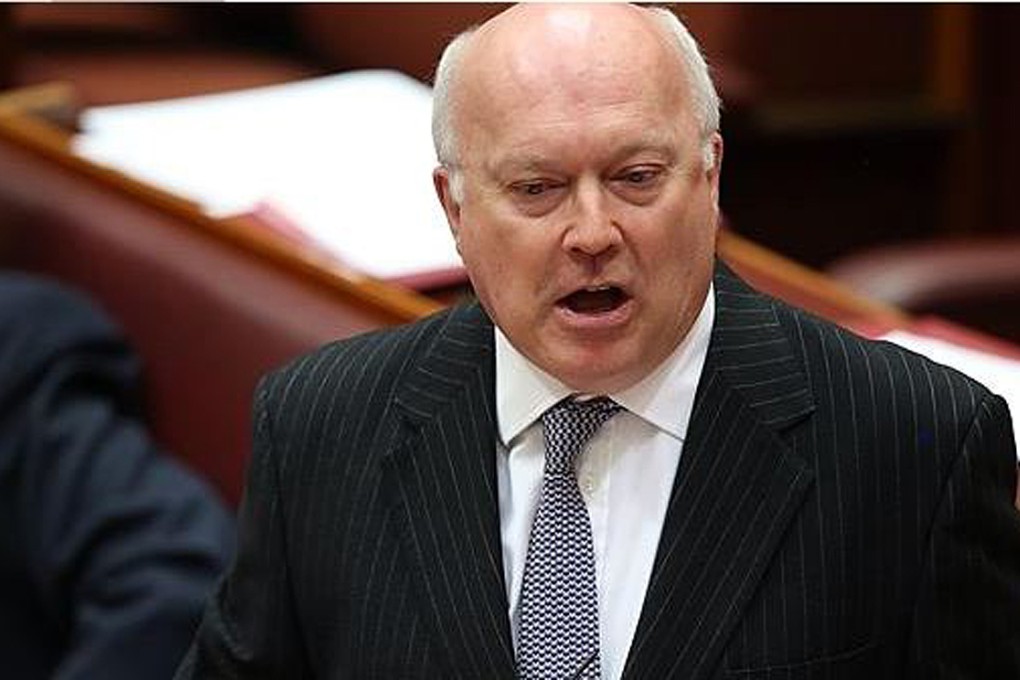New counterterrorism law targets leakers, not reporters: Australian attorney-general
George Brandis insists powerful new security law is aimed at operatives who leak classified information, not against journalists doing their jobs

A contentious new law that carries a prison term for anyone who reveals information about certain secret security operations was aimed at Edward Snowden-like leakers rather than investigative reporters, Australia’s attorney-general said on Thursday.
George Brandis announced that he was adding a safeguard for journalists who might fall foul of the tough new counterterrorism law by giving the attorney-general of the day a power of veto over any media prosecution.
“It’s a very powerful, practical safeguard for a minister, who is a practicing politician, to assume personal responsibility for authorising the prosecution of a journalist,” Brandis said.
“There is no possibility ... that in our liberal democracy a journalist would ever be prosecuted for doing their job.”
The most contentious section of a tranche of counterterrorism legislation passed on Wednesday by the Senate carries a potential 10-year prison sentence for anyone who discloses information that relates to a “special intelligence operation.” The attorney general decides which operations fit that perpetually secret category.
Journalists and rights groups have condemned the law as an attack on press freedom.
While the opposition voted for the legislation in Parliament, opposition leader Bill Shorten wrote to Prime Minister Tony Abbott on Wednesday outlining his concerns about the law’s “potential to impinge up public interest reporting on national security issues.”
Brandis said that section was primarily “intended for a Snowden-type situation,” referring to the former US National Security Agency contractor who leaked thousands of classified documents.